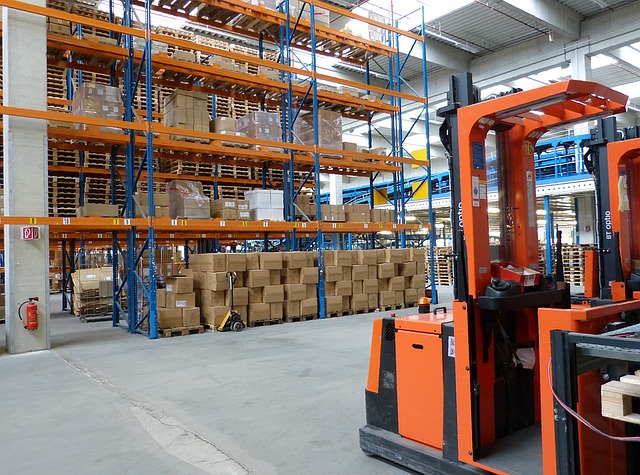-
Customs bonded warehouses under the Port of Manila are now using the Bureau of Customs’ Automated Inventory Management System (AIMS)
-
Under the system, CBW operators must complete submission of their product bill of materials compliance data and inventory on or before September 30
-
All CBWs should make available all warehousing single administrative documents (SAD) and transshipment SAD for all warehousing re-entry tagged “PAID”, and export declaration of CBWs tagged “ASSESSED” in the E2M system and processed on August 11 onwards
The Bureau of Customs’ (BOC) Automated Inventory Management System (AIMS) is now being used by customs bonded warehouses (CBW) under the Port of Manila (POM).
The AIMS went live on September 14, more than a month after all accredited CBWs under POM were directed to complete requirements to implement the system’s first phase.
As of September 20, CBWs have already made live declarations to the AIMS.
With AIMS going live, all CBWs under POM are required to make available all warehousing single administrative documents (SAD) and transshipment SAD for all warehousing re-entry tagged “PAID.” They must also make available their export declaration tagged “ASSESSED” in the Electronic-to-Mobile (E2M) system and processed on August 11 onwards.
This will allow the CBW operator or its representative to process post and current declarations, according to AIMS accredited service provider Cargo Data Exchange Center, Inc. (CDEC) in an advisory dated September 13.
These declarations include entry declaration-raw materials, withdrawal declaration, entry of finished goods declaration, transfer declaration, toll manufacturing declaration, write-off (wastage) declaration, and exit/export declaration.
CDEC reminded CBWs that the initial inventory must be composed of imported bonded raw materials, semi-finished and finished goods available on hand at the warehouse, as well as the raw materials in the production or in work-in-progress stage as of August 10, 2021.
CDEC also said CBWs must ensure their AIMS payment accounts are funded to avoid delay in transaction processing under AIMS.
Data submission deadline
Assessment and Operations Coordinating Group (AOCG) deputy commissioner Atty. Edward James Dy Buco, in a separate memo dated September 16, enjoined all concerned CBW operators to complete the submission of their product bill of materials compliance data and inventory on or before September 30, 2021 for CDEC to process uploading of data files into the AIMS.
Dy Buco in a memo on August 5 directed all accredited CBWs under POM to ensure compliance with prerequisites prescribed under Section 4.2 of Customs Memorandum Order (CMO) No. 20-2021.
READ: CBWs ordered to complete prerequisites before AIMS rollout
CMO 20-2021, which took effect last July 1, provides guidelines on the operations and use of AIMS for imported raw materials that are entered into registered CBWs, regardless of type or classification of the CBW.
READ: BOC requires CBWs to use automated inventory system
AIMS is the automated system that CBW operators should adopt as a tool to determine and monitor the stock inventory of bonded goods from the time these goods enter the CBW up to the point the goods declaration covered by the warehousing single administrative document is liquidated.
CMO 20-2021 said AIMS is being implemented to protect BOC from revenue loss caused by possible diversion of raw materials, unauthorized withdrawals, or ghost exportations.
All CBWs granted the License to Operate by BOC should implement the AIMS of the service provider accredited by the customs bureau.
Declarations charged lodgment fee
According to CMO 20-2021, the AIMS service provider will charge a transaction fee of P160 exclusive of value-added tax for every lodgment of the following declarations under AIMS:
- Entry declaration (direct import and constructive import, raw materials) – entry/arrival
- Withdraw-manufacture declaration – withdrawal declaration
- Toll manufacturing declaration release or return – transfer declaration
- Transfer declaration from mother warehouse to member – transfer declaration
- Entry declaration (finished goods) within the CBW or arrival from subcontractor
- Exit declaration – export
- Withdraw-local sales declaration (raw materials, semi-finished, or finished goods) – withdrawal
- Write off declaration – write off
- Constructive export – construction exportation
- Filing of liquidation in the AIMS – liquidation
If the shipment is less than P50,000 in value, the CBW operator/accredited member of customs common bonded warehouses (CCBW) will only pay for the creation of the entry declaration in the AIMS and the filing of liquidation of the declaration.
Declarations made by an accredited subcontractor in the AIMS will not be subject to any charges nor will the generation of any other type of reports from the AIMS.
BOC will not collect any fees on behalf of the AIMS service provider but will collect from the service provider a service fee for monitoring and supervising the AIMS. The fee is equivalent to 10% of fees collected exclusive of VAT in accordance with the published rate for the use of AIMS.
The committee on service provider accreditation will review the fee structure every two years and may recommend changes.
If the AIMS service provider fails to meet its service level agreement target, it will face penalties and its accreditation may be revoked or pre-terminated by BOC.
Any person or entity who obstructs, or attempts to obstruct, the implementation of CMO 20-2021 and its related rules and issuances; or who assists in the same, or who allows oneself to be used to commit the same, will face civil, criminal, and/or administrative penalties.
BOC officials or employees who violate CMO 20-2021 or act to undermine its implementation will be immediately relieved, transferred to another office, or assigned to a less sensitive position. This is in addition to sanctions as may be imposed under the Customs Modernization and Tariff Act and Civil Service laws, rules, and regulations. – Roumina Pablo





